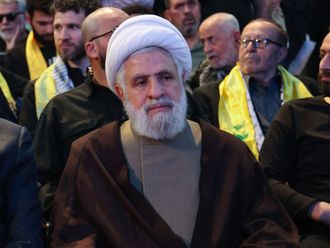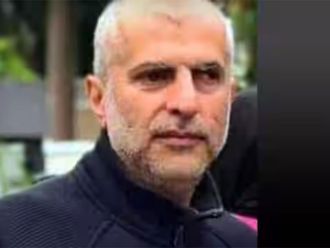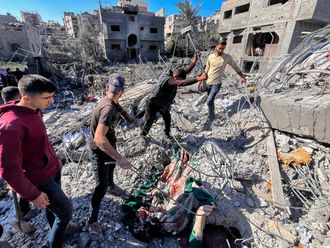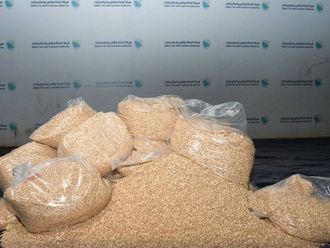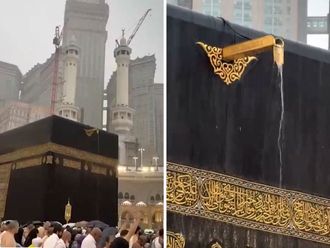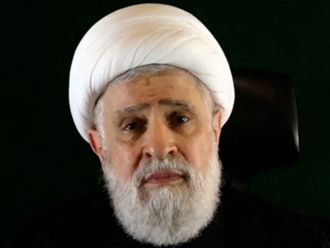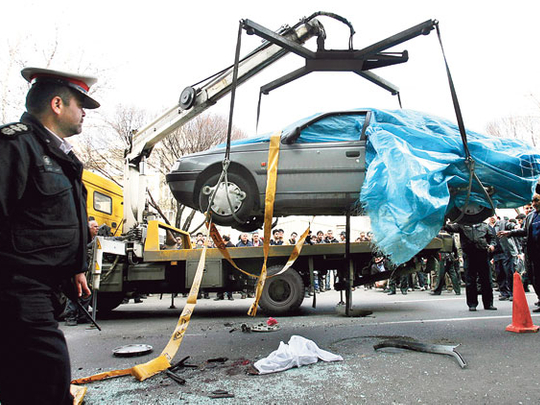
Dubai: The killing of yet another Iranian nuclear scientist yesterday is an indication of escalating tensions between Iran and the West, according to observers.
Mustafa Ahmadi Roshan, 32, director of the Natanz uranium enrichment facility in central Iran, who was also a chemistry expert and university professor, was killed after two assailants on a motorcycle attached magnetic bombs to his car, the semi-official Fars news agency reported.
Two other Iranians were injured in the deadly explosion, which is the latest in a series targeting Iranian nuclear scientists.
"There is no other cause for this kind of assassination," Anoush Ehteshami, a professor of international relations at Durham University, told Gulf News. The killing is part of an "undeclared war" and "escalatory dynamic" between Iran and the US, he said.
The assassination comes amid mounting tensions over Tehran's nuclear programme, which many fear is military in nature. Iran has denied that its programme has any other purpose other than being for civilian use.
"The increase in assassinations tells us that it is very much part of a covert strategy," Salman Shaikh, Director of the Brooking Doha Centre, said.
Nobody knows where this "escalatory dynamic" between the two sides will lead to, Shaikh said, adding that while full scale confrontation is an option, it doesn't seem imminent for the time being.
"Iranians are closer to a nuclear breakthrough and the Americans and the Europeans feel they need to act," Shaikh explained.
Iran blamed yesterday's assassination on Israel and the US and vowed that the attack would not stop Iran from making "progress" in its nuclear activities.



